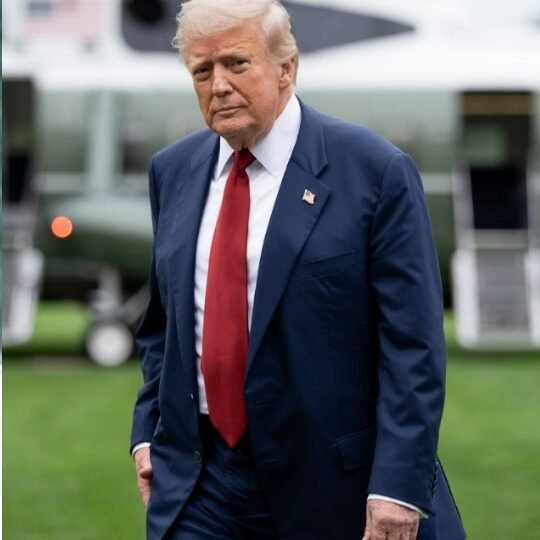Trump’s Remark Sparks Political Reactions
A fresh controversy has erupted after United States President Donald Trump claimed on his social media platform, Truth Social, that Washington has “lost Russia and India to deepest, darkest China.” The remark came as he shared an image of Prime Minister Narendra Modi with Russian President Vladimir Putin and Chinese President Xi Jinping at the recent Shanghai Cooperation Organisation (SCO) summit in Tianjin. In his post, Trump suggested that the strategic alignment of the three major powers signaled a diplomatic loss for Washington, writing, “Looks like we’ve lost India and Russia to deepest, darkest China. May they have a long and prosperous future together!”
The statement triggered widespread debate in New Delhi, where opposition leaders and analysts interpreted it as both a warning and an oversimplification of India’s foreign policy choices.
Trump Clarifies: “I Don’t Think We Have Lost India”
Responding to his own post a few days later, Trump softened his stance while addressing reporters at the White House. Asked if he believed the United States had indeed lost India to China, he replied, “I don’t think we have. I’ve been very disappointed that India would be buying so much oil from Russia. I let them know that. We put a very big tariff on India—50 per cent, very high tariff.”
Despite his sharp words, Trump stressed his personal rapport with Prime Minister Modi, recalling Modi’s recent visit to Washington and their joint appearance in the Rose Garden. Yet, his disappointment with India’s continued purchase of discounted Russian crude remained clear.
Adding fuel to the debate, Peter Navarro, Trump’s senior counsellor for trade and manufacturing, alleged that India’s high tariffs and oil imports from Moscow were costing “American jobs.” He accused New Delhi of economic profiteering amid geopolitical tensions.
Manish Tewari’s Strong Response
It was against this backdrop that Congress MP Manish Tewari delivered a pointed rebuttal. In a post on X, he declared that Trump and his advisors misunderstood India’s position, stating:
“What @realDonaldTrump and the likes of @RealPNavarro don’t quite get is it is not about tariff’s, it is about self respect, dignity and honour. We fought the Imperial British & vanquished them. India will eat one Roti less but never succumb to strong arming.”
Tewari’s statement struck a chord, evoking the nation’s freedom struggle to underline India’s refusal to bend under external pressure. By drawing a direct link between colonial history and present-day geopolitics, he positioned India’s stance as one of sovereignty rather than economic bargaining.
India’s Tightrope in Global Alignments
The episode highlights the growing strain in Washington’s perception of India’s independent foreign policy. India has maintained strategic partnerships with both the United States and Russia, while also engaging with China through multilateral forums like the SCO and BRICS. Its refusal to join Western sanctions against Moscow and its reliance on affordable Russian oil imports have raised concerns in Washington, despite strengthening defense and trade ties with the US.
Analysts note that India’s “multi-alignment” policy is rooted in pragmatism—seeking energy security, balancing rivalries, and preserving strategic autonomy. Trump’s blunt style, however, contrasts with the Biden administration’s careful diplomacy in managing these complexities.
Broader Political Implications
Domestically, Trump’s remarks have provided the Congress and other opposition parties with ammunition to assert India’s independence from external dictates. By invoking nationalist sentiment, leaders like Tewari are framing the issue less as an economic dispute and more as a matter of honour.
Observers suggest that such statements also resonate with a larger Indian audience that views sovereignty as non-negotiable, especially when foreign leaders appear to dictate economic or geopolitical choices.
As the US gears up for its own elections, Trump’s rhetoric is expected to remain combative, particularly on trade issues. For India, however, the incident reinforces the delicate balancing act between maintaining close ties with Washington while safeguarding its strategic independence with Moscow and Beijing.
Conclusion
The storm over Trump’s “lost India” remark reflects more than a passing diplomatic spat. It underscores the challenges of managing complex international relationships in an era of shifting alliances. For India, the message articulated by Manish Tewari is clear: economic sacrifices may be endured, but self-respect and sovereignty will not be compromised.








